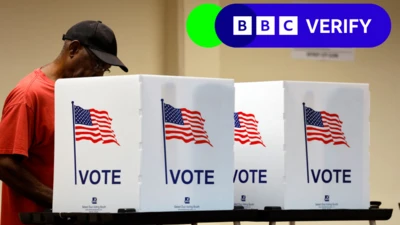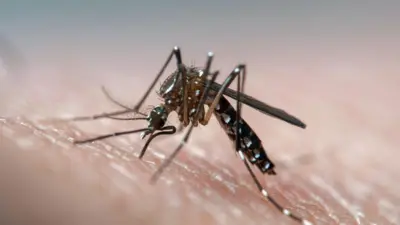We've updated our Privacy and Cookies Policy
We've made some important changes to our Privacy and Cookies Policy and we want you to know what this means for you and your data.
Hereditary peers reform plan runs out of time
Image source, PA
A bill to scrap hereditary peer by-elections has faltered amid claims of an attempt to talk it out.
Tory peer Lord Trefgarne was accused of being involved in a "clear filibuster" to prevent the House of Lords Act 1999 (Amendment) Bill from progressing.
He also tabled more than 40 of up to 60 amendments with fellow hereditary the Earl of Caithness for debate.
He was warned by other peers that standing in the way of reform risked making the chamber a "laughing stock".
Reforms to the Lords by the last Labour government left just 92 hereditary peers in place in 1999.
The bill, put forward by Labour's Lord Grocott, would remove the election process used to fill vacancies caused by the death, resignation or expulsion of the hereditary peers.
Only hereditary peers are eligible to stand for election, and only peers from the group in which the vacancy arose can vote.
In the Lords on Friday, Labour forced a vote on Lord Trefgarne's first amendment, rejecting it by 105 votes to 12 - in a bid to prevent Lord Grocott's bill from being killed off.
The Opposition also helped reject a second amendment by 95 votes to 26.
'Clear filibuster'
Faced with the prospect of tens of votes, appeals were made to Lord Trefgarne to withdraw the remaining amendments.
Labour's Lord Hunt of Kings Heath pressed him: "Why are you engaging in a clear filibuster?"
And Labour's Lord Anderson of Swansea said trying "to swamp" the bill with amendments to prevent it from making any progress risks "making us a laughing stock".
Conservative former MP Lord Cormack also backed the need for reform, describing the current system of by-elections as "ludicrous".
'Great tradition'
But Lord Trefgarne said he was opposed to the proposals because they represented "piecemeal reform to which we profoundly disagree".
And Conservative Viscount Trenchard said the "presence of the hereditaries in this House is seen as a continuation of a great tradition".
"It is a link with history and therefore I think that those who wish to end the hereditary principle for topping up the 92 hereditary peers make a mistake."
As the committee stage debate neared two hours and with Lord Grocott not seeking to withdraw his bill, proceedings on the proposal were adjourned.
The measure is highly unlikely to become law without government backing.
In April, only three existing members of the House of Lords were able to vote in a Liberal Democrat hereditary peer by-election.
Former MP John Thurso was elected to sit in the upper chamber as a Lib Dem hereditary peer after winning a contest triggered by the death of Lord Avebury.
Viscount Thurso was a member of the Lords for four years between 1995 and 1999 before leaving after Labour's reforms axed most hereditary members.
He then served as MP for Caithness and Sutherland for 14 years until last May.
Top Stories
More to explore
Most read
Content is not available








